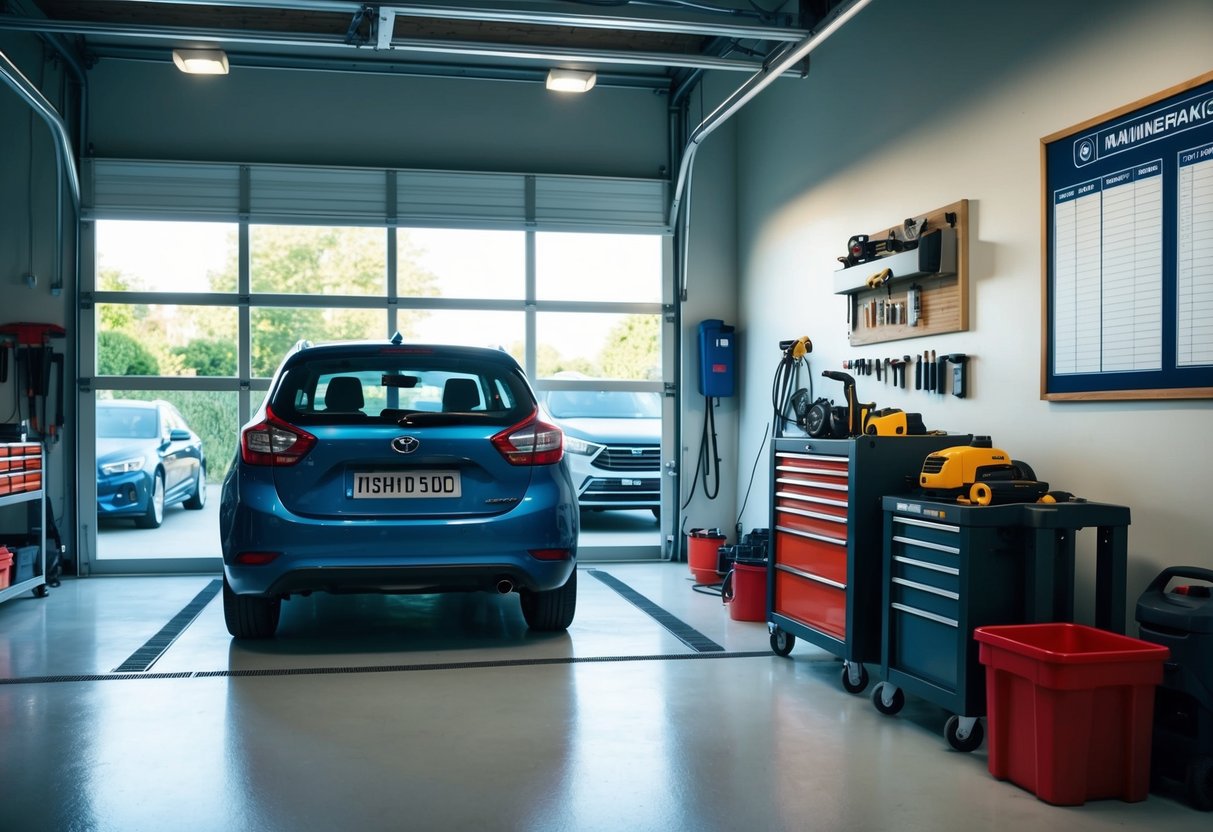
When it comes to getting the most out of your vehicle, regular maintenance is key. Regular check-ups and timely repairs can significantly extend the life of your car, saving you money and headaches in the long run. Investing in a consistent maintenance schedule ensures that your car runs smoothly and efficiently, thus avoiding costly breakdowns and ensuring a reliable performance.
Following a maintenance schedule not only boosts your vehicle’s longevity but also improves its resale value. By keeping up with oil changes, tire rotations, and brake inspections, your car remains in peak condition, which can make a significant difference when it’s time to sell or trade-in.
Preventative care might seem like a hassle, but it’s a small price to pay for peace of mind. Making this routine part of your investment strategy pays off. Informed car owners always benefit from making smart, proactive choices about their vehicles.
Understanding Your Vehicle’s Maintenance Needs

Regular maintenance is crucial for keeping your vehicle in optimal condition. Drivers should be aware of their vehicle’s specific requirements to prevent issues and costly repairs.
Learning the Recommended Maintenance Schedule
Each vehicle comes with a recommended maintenance schedule provided by the manufacturer. This includes detailed information on when to perform key services such as oil changes, tire rotations, and brake inspections. Sticking to this schedule helps keep the engine running smoothly and extends the vehicle’s lifespan.
Failing to adhere to the maintenance schedule can lead to major issues. For example, neglecting oil changes can result in engine damage. Checking the vehicle’s manual and following the outlined procedures is essential.
Recognizing Warning Signs and Dashboard Indicators
Modern vehicles are equipped with various warning lights and indicators to alert drivers to potential problems. These include the check engine light, oil pressure warning, and tire pressure monitoring system. Understanding what these lights mean can help drivers address issues promptly.
Ignoring warning lights can lead to serious problems. For instance, driving with a check engine light on can cause further damage if not resolved. Immediate attention to these indicators is crucial for vehicle health.
Adopting Proactive Car Care Habits
Proactive car care involves regular checks and simple habits to ensure a vehicle remains in good condition. This includes monitoring tire pressure, checking fluid levels, and keeping the vehicle clean. Such habits prevent small issues from escalating into larger problems.
Good driving habits also contribute to vehicle longevity. Avoiding harsh braking and rapid acceleration reduces wear and tear on the engine and brakes. Regular inspection and maintenance foster a longer lifespan for the vehicle.
Regular Oil and Fluid Management
Proper oil and fluid management is crucial for maintaining vehicle performance and extending its life. This involves timely oil changes and monitoring essential fluids like transmission fluid, coolant, brake fluid, and power steering fluid.
Scheduled Oil Changes and Choosing the Right Oil
Regular oil changes are essential for engine health. Most vehicles require an oil change every 3,000 to 5,000 miles, but modern cars with synthetic oils can extend this interval up to 7,500 miles. It’s important to consult the vehicle’s manual for specific oil change intervals.
Choosing the right oil is equally important. Manufacturers typically recommend oils based on viscosity and performance. Synthetic oils offer better lubrication and temperature resistance, making them ideal for high-performance engines. Regularly replacing the oil filter during an oil change ensures contaminants do not harm the engine.
Checking and Topping Up Essential Fluids
Beyond engine oil, vehicles rely on several other fluids to function properly. Checking and topping up transmission fluid, coolant, brake fluid, and power steering fluid is crucial. Transmission fluid ensures smooth gear shifts and should be checked monthly, particularly if the vehicle shows signs of transmission issues.
Coolant maintains proper engine operating temperatures, preventing overheating. It’s advisable to check the coolant level every few months, especially before long trips. Brake fluid is vital for braking efficiency and should be inspected every 30,000 miles. Power steering fluid aids in effortless steering and should be checked for adequate levels and clarity regularly.
Understanding the Role of Fluids in Vehicle Performance
Each fluid in a vehicle plays a specific role in maintaining performance. Engine oil lubricates moving parts, reduces friction, and helps control engine temperature. Transmission fluid prevents gear slipping and overheating. Coolant circulates through the engine, maintaining a stable temperature by absorbing and dissipating heat.
Brake fluid transfers hydraulic force to the brakes, ensuring effective stopping power. Power steering fluid allows for smooth and responsive steering, enhancing driving comfort and safety. Proper management of these fluids ensures that the vehicle runs efficiently, minimizes wear and tear, and prolongs the life of critical components.